THE WOMEN’S HEART TO HEART PROGRAM, AT THE MAIMONIDES HEART & VASCULAR INSTITUTE, IS MAKING WOMEN’S CARDIOVASCULAR HEALTH A PRIORITY
BY JESSICA JONES GORMAN • PHOTOS © AMESSÉ PHOTOGRAPHY
When Maimonides Medical Center launched its Women’s Heart to Heart Program in 2013, the goal was to make women’s heart health a priority. Supported by the Maimonides Heart & Vascular Institute, the program not only aimed at educating women on the facts and risks of heart disease, it also committed to increasing access for women in communities throughout Brooklyn to the hospital’s women’s health programs. Six years later, Heart to Heart is still going strong.
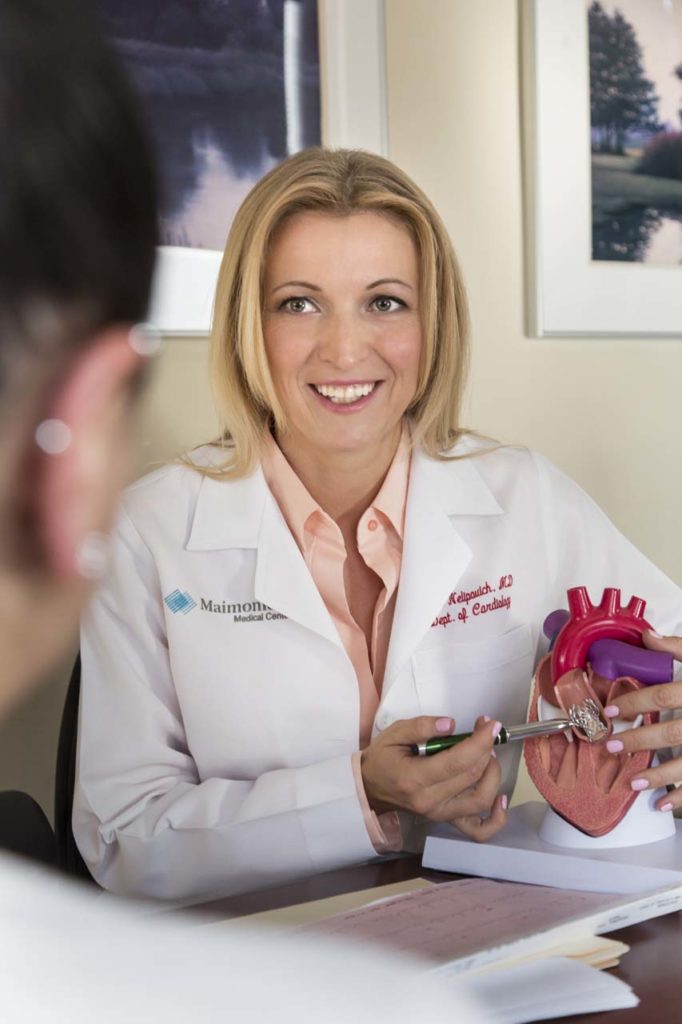
“Heart disease is the leading cause of death for women in the United States approximately one of every four will die from the disease,” noted Dr. Inna Nelipovich, Director of the Maimonides Women’s Heart to Heart Program and an attending cardiologist at the hospital. “Women develop coronary artery disease and hypertension just as often as men do, but because so many people view these conditions strictly as ‘men’s issues’, women are unaware, underdiagnosed, and often undertreated for these conditions.”
This is one of the main reasons why, she explained, Maimonides has placed emphasis on community outreach, hosting four to five educational events annually.
“Patients must be aware of their risk factors and symptoms,” Dr. Nelipovich said, pointing out that the causes of heart disease in women differ from those in men. “There are so many misconceptions about how heart disease occurs in women. It cannot be simplified alone to risk factors such as abnormal cholesterol, smoking, or the effect of estrogen and estrogen withdrawal on coronary plaque build up. For women, risks factors may vary with age. Women of child bearing age, for example, may have a different set of risks than post-menopausal women.”
“There are four generations of doctors in my family my great grandfather, both of my grandmothers, and my mom so I was very inspired to join this profession,” she said, adding that she earned her medical degree from SUNY Downstate before completing an internship and residency at Montefiore Medical Center Albert Einstein College of Medicine, and completed her fellowship at New York Presbyterian Hospital Queens.
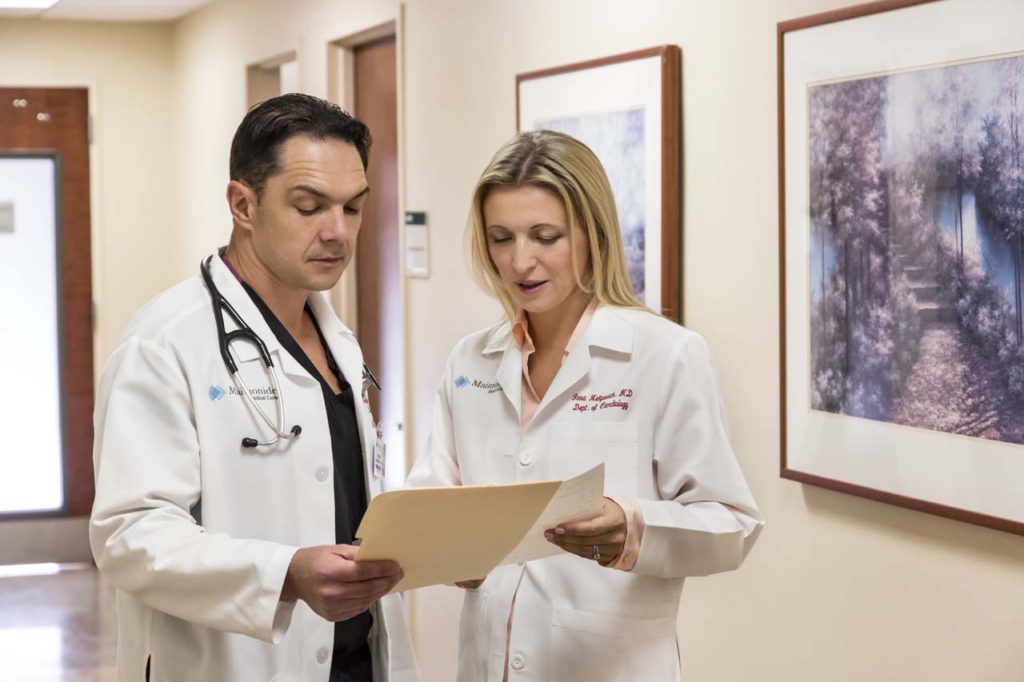
“I chose this specialty because it allowed for an opportunity not just to intervene and save someone’s life, but to reverse the disease process at the very start,” she said.
In 2011, she became an attending cardiologist and part of the teaching faculty at Maimonides Medical Center. “Through the Women’s Heart to Heart Program, we’ve had a lot of success reaching out to different parts of Brooklyn, offering free screenings and follow up care. We strive to be connected to the community, and to work with medical professionals from a variety of subspecialties to offer these women a full array of care.”
The program encourages women to seek preventative care to reduce their risk of developing cardiovascular disease. By providing them with direct access to Maimonides physicians and resources such as free heart screenings and healthy eating tips, Women’s Heart to Heart is doing just that. According to Dr. Nelipovich, the program is empowering women to make heart healthy lifestyle changes.
“It’s a wonderful support system for this community,” Dr. Nelipovich said. “We are able to offer a wealth of resources to those who really need it,” adding that the Women’s Heart to Heart Program is just one of the cardiovascular services that Maimonides has to offer.
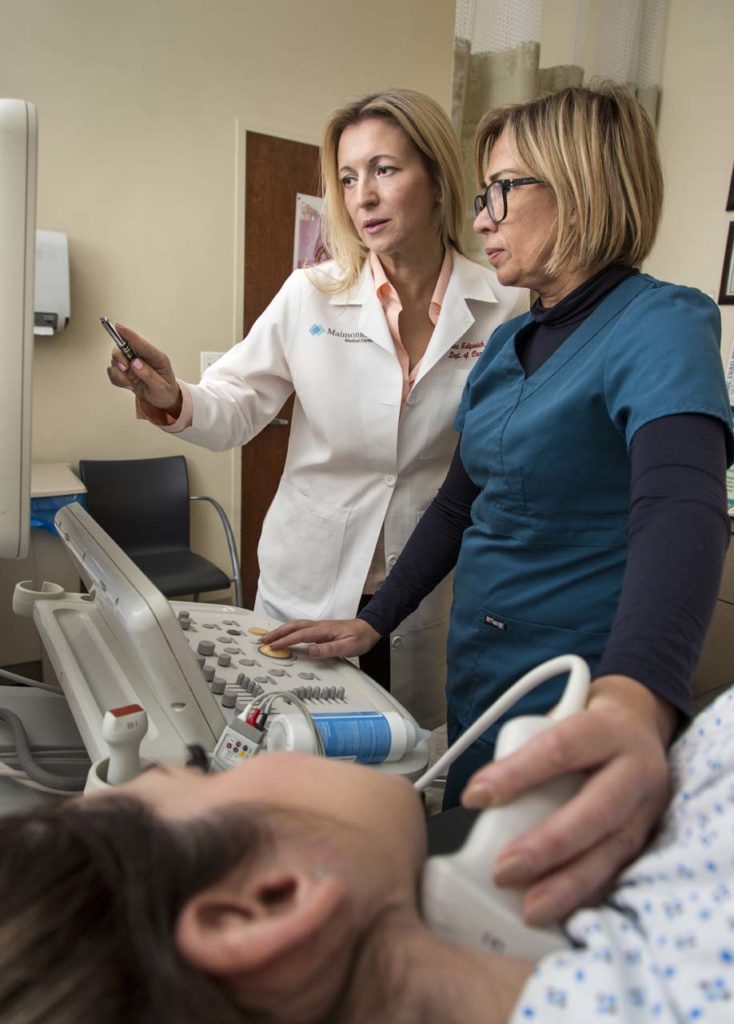
According to the New York State Department of Health, Maimonides has the best heart attack patient outcomes in the State. Its cardiac surgery team leads in heart valve surgery achieving better results than any Manhattan hospital.
The Maimonides Heart & Vascular Institute is at the forefront of treatment for atrial fibrillation (a fib), a heart rhythm disorder that increases risk of stroke. The convergent procedure is an advanced form of heart ablation used to treat this condition. Using radio frequency to “rewire” the heart’s electrical system, specialists ablate the inside and outside of the heart, thereby correcting the disorder. Maimonides was among the first hospitals in the nation to provide this groundbreaking treatment, and continues to be the only hospital in New York City to provide both approaches under one anesthesia making this safer for patients.
Maimonides cardiac specialists also treat aortic stenosis with the transcatheter aortic valve replacement (TAVR) procedure. “As with our Advanced Heart Failure and Mechanical Circulatory Support Program, we are equally successful in our minimally invasive TAVR procedures, when surgery is too high risk for a patient,” Dr. Nelipovich said. “There are a lot more octogenarians and nanogenerians alive in Brooklyn today because of these lifesaving procedures.”
“In terms of cardiovascular care, our angioplasty and stent outcomes are number one in New York State,” she added, detailing how Maimonides has been ranked for clinical excellence by both the State and federal government. “Maimonides has a long history as a pioneer in cardiac care. We were the first hospital in the nation to perform a heart transplant over 50 years ago. We have a robust Advanced Heart Failure and Mechanical Circulatory Support Program that helps patients with end stage heart failure by implanting a left ventricular assist device (LVAD) a solution for patients who are heart transplant candidates awaiting a new heart. It is also an alternative for patients who suffer from severe, non-reversible congestive heart failure but are not eligible for heart transplantation in which case the LVAD serves as a permanent treatment. We are the only hospital in Brooklyn performing this procedure.”
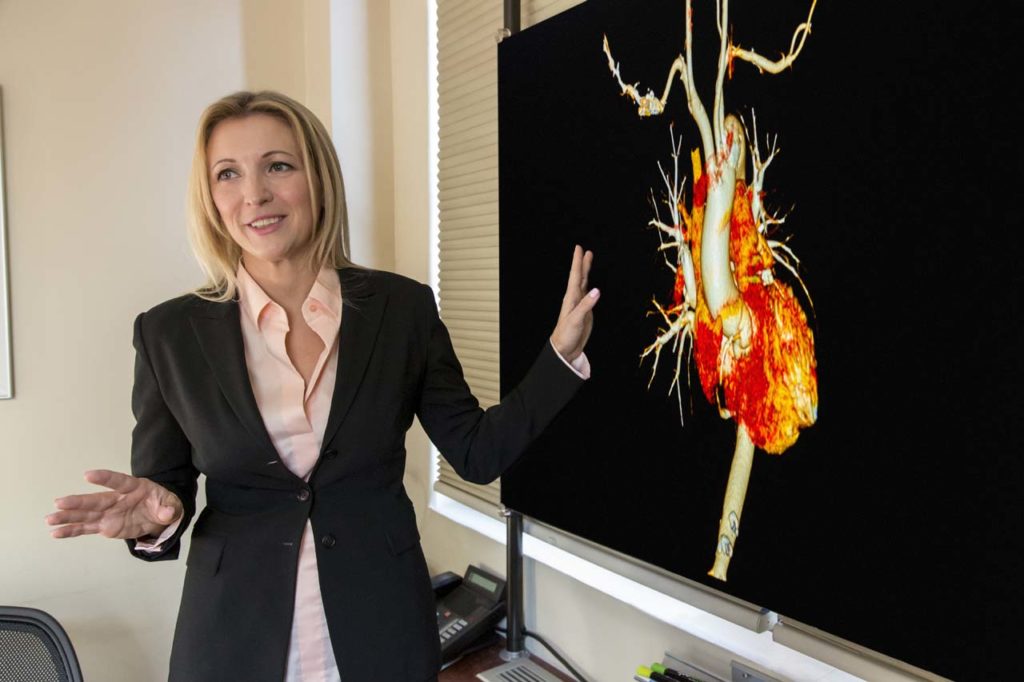
“The multidisciplinary approach truly does improve patient outcomes,” Dr. Nelipovich continued. “We have so many different subspecialties under one umbrella, working together to achieve the best care. I think that level of collaboration is the key to our success.”
Dr. Nelipovich also collaborates with her peers in obstetrics and gynecology, as well as other primary care physicians.
“Women must pay attention to risk factors that present themselves through the years,” she explained. “There are many pregnancy related issues that can signal an underlying cardiac issue, and heart issues can be introduced during menopause, which is something that women must pay close attention to,” adding that cardiac care is not something that should ever wait.
“It should not start when you’re 65 years old,” she said. “If you have a family history or have experienced any sort of problem, you should see a doctor, regardless of age. I see women of all age groups, from 18 to 97.”
That culture of early intervention coupled with emerging technology will make vital differences in the future of care, Dr. Nelipovich said. “Technology is expanding to offer some truly innovative tests and procedures. It’s very exciting to be on the forefront of such inspiring change.”
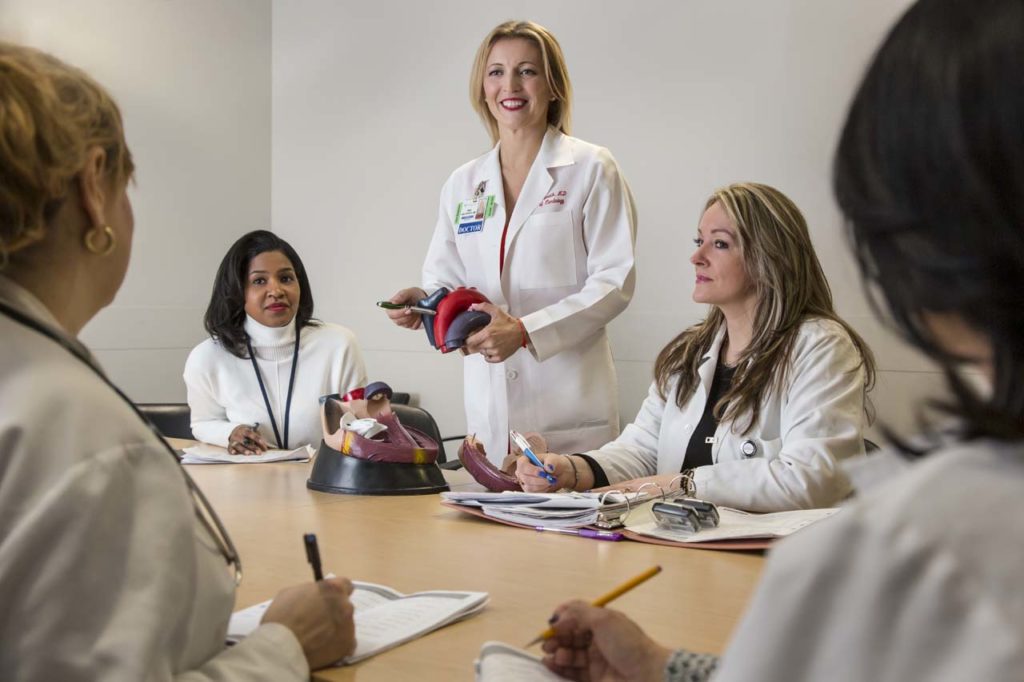
Maimonides cardiovascular experts perform thousands of noninvasive, minimally invasive and interventional procedures each year in state of the art hybrid operating rooms, catheterization and electrophysiology labs, and a dedicated Vein Center. The Maimonides Heart & Vascular Institute is ranked number one in New York State for cardiac care, and is among the nation’s best heart hospitals. Maimonides has a long history of providing exceptional patient care, and is among the top 10 hospital systems nationwide for clinical excellence.
Maimonides Heart & Vascular Institute
4802 10th Avenue / 888.MMC.DOCS nycHeart.org


